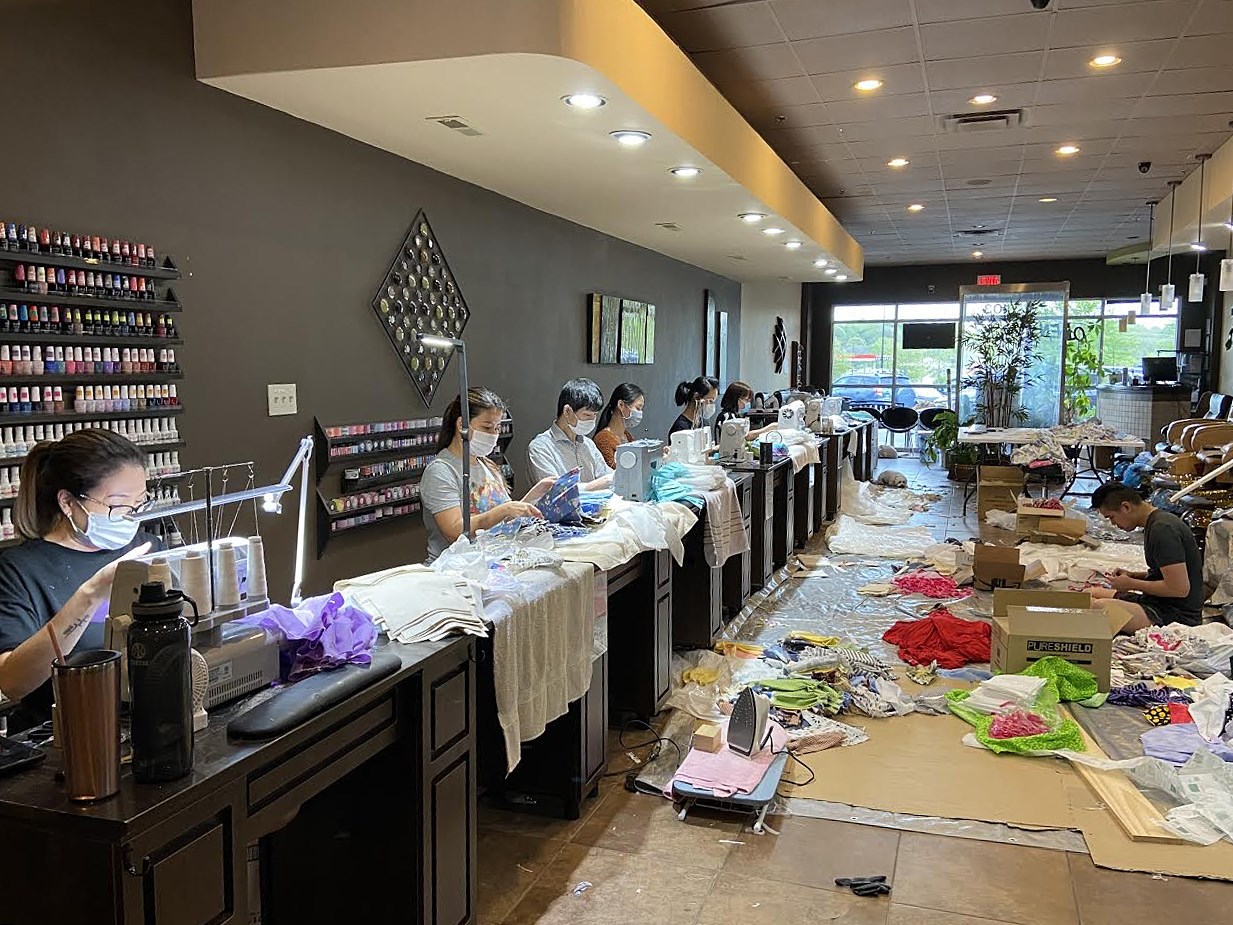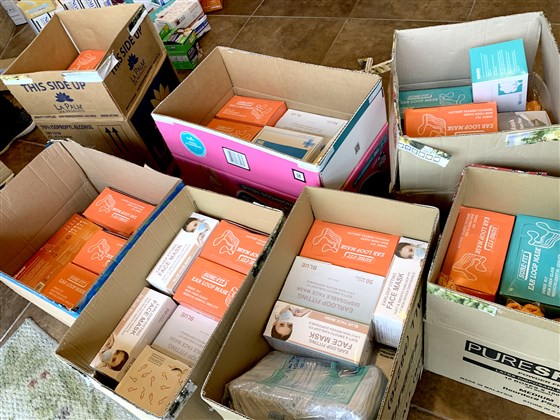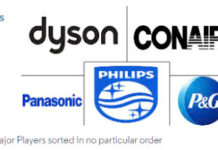“Fighting this virus is a responsibility for every one of us,” one salon owner said.
When Huy Nguyen closed his nail salon in Mobile, Alabama, two weeks ago in response to the coronavirus pandemic, he donated all of the protective equipment in his inventory — a few hundred masks and eight boxes of gloves.
Nguyen, an owner of Top Nails 2, wasn’t alone. Prompted by a Facebook request from a local Vietnamese pharmacist, dozens of other Vietnamese salon owners in Mobile came together and contributed more than 134,000 gloves and 23,000 masks to a nearby hospital. Nguyen later called friends who own salons in other cities and encouraged them to do the same.

Zen Nails in Brentwood, Tenn., has converted its space into a small factory producing protective masks and gowns for local hospitals.“Fighting this virus is a responsibility for every one of us,” he told NBC Asian America. “We don’t work in the medical field, so we cannot fight the virus directly but we want to share our responsibility and share what we have with the community.”
As health care professionals report shortages of personal protective equipment, Vietnamese-owned nail salons across the country, which dominate the multibillion-dollar nail industry in the U.S., are donating protective masks and gloves — requisite sanitation items in every salon — to hospitals in their communities.

Like Nguyen in Mobile, Lisa Nguyen and her parents, owners of Cowboys Nail Bar in Plano, Texas, decided to donate everything they had in stock — including 14 boxes of N95 masks — to family members who work at the University of Texas Southwestern Medical Center after hearing about the supply shortages that nurses and doctors were facing.
“Whatever we have, we only hope it will help not only our family members but their colleagues,” Nguyen said.
In Brentwood, Tennessee, the co-owners of Zen Nails have taken their efforts one step further.
They’re not only donating supplies, but also converting their nail salon into a small factory producing face masks and gowns. Instead of polish, sewing machines now sit on top of each nail station, and every day employees volunteer for up to nine hours making personal protective equipment for local health care providers.
Salon co-owner Trang Nguyen worked overnight shifts as a registered nurse for several years and said she’s still close with many nurses.
“When I saw a lot of them talking about how they are really short on equipment, I really wanted to help,” she said. “These people need to be protected before they can take care of patients. I thought we could do masks and gowns because my family knows how to sew.”
Nguyen closed Zen Nails the week before the governor ordered the closure of all nonessential businesses on April 2. After a deep cleaning, employees went back to work. Nail salon patrons donated sewing machines and funds to buy the raw materials for the personal protective equipment.
In the first week, they produced more than 3,000 disposable and reusable face masks and gowns, which have been donated to three local hospitals: St. Thomas Medical Partners, Williamson Medical Center and HCA Healthcare.
Certain materials, such as polypropylene and plastic bands, are becoming harder and harder to find, Nguyen said, but she hopes to continue producing masks and gowns.
“We want to give back to the country and our community,” she said.
Rosalind Chow, associate professor of organizational behavior and theory at Carnegie Mellon University, said the network effect can amplify charitable acts.
“People mainly know people who are similar to them,” she said. “That’s why you might see that once one nail salon owner starts organizing something, many more similar businesses will be inclined to contribute to that offer.”
“For business owners and employees to be willing to do this work and give up these resources without knowing whether or not they’ll be paid back is a real testament to their desire to help,” Chow said.
Source https://www.nbcnews.com/




